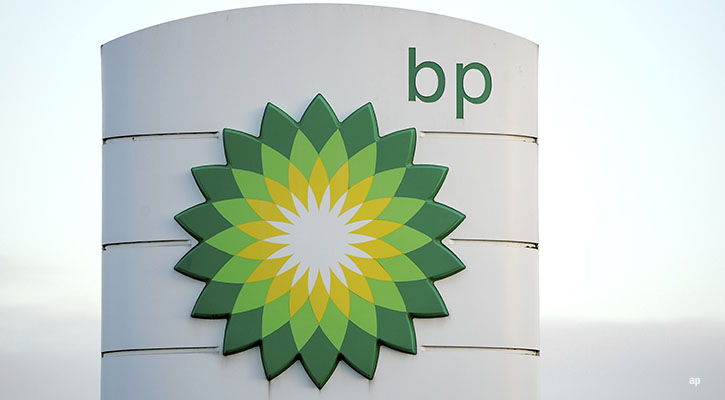
Shares in BP (BP.) were the biggest risers on the FTSE 100 this morning as the oil giant announced higher-than-expected fourth quarter profits and crowd-pleasing buybacks worth $3.5 billion (£2.8 billion) in the first half of the year.
The 6% share price move came even as full-year profits were effectively halved from just below $28 billion in 2022 to just under $14 billion for the most recent financial year.
Profits in 2022 had been inflated by the impact of the Russia-Ukraine conflict on the oil price and led to calls for an increased windfall tax on oil companies. Oil prices have since softened considerably.
(The figures are based on "replacement cost profit", a common measure used by oil companies; profit attributable to BP shareholders was higher at $15 billion for the full year.)
BP Profits Best Since 2012
Despite the fall in profits over the year, 2023 results were the strongest since 2012. The fourth-quarter dividend was hiked 10% to 7.270 cents on the same period the year before.
John Moore, senior investment manager at RBC Brewin Dolphin, argues there are other positives in the numbers:
"BP is still in resilient shape – surplus cashflow remains positive, net debt has fallen, and the management team's optimism can be seen in the 10% increase in dividend distributions."
BP's results follow those of larger rival Shell (SHEL) – featured in our recent stock of the week video – which also announced a raised dividend and new buybacks even as full-year profits fell sharply on the prior year. Shell shares also rose on the day. BP's $3.5 billion buyback pledge now matches that of Shell.
While BP shares rose to £4.78 on Tuesday, they are still trading below their Morningstar fair value estimate - having barely moved since the same point last year.
Key Morningstar Metrics for BP Stock
• Fair Value Estimate: £5.60;
• Morningstar Rating: ★★★★;
• Morningstar Economic Moat Rating: None;
• Morningstar Uncertainty Rating: High.
BP - Personnel Drama over CEO Conduct
A lot has happened at BP in the last financial year. For one, former chief executive Bernard Looney, who was credited with pushing the company's net zero ambitions further than rivals, last year resigned over misconduct claims.
Chief financial officer Murray Auchinloss was first appointed as interim chief executive but was then confirmed in post recently. Susannah Streeter, head of money and markets at Hargreaves Lansdown, notes his arrival has brought a "back to basics" approach to running an oil company: generate lots of money and share it with investors.
"The priorities of BP's new chief executive Murray Auchincloss have been made clear," she says.
"Although on appointment he pledged that BP's strategy to transition from an international oil company to an integrated energy company was unchanged, the big share buyback announcement shows the immediate focus is on boosting the share price and returning value to shareholders."
All Eyes on the BP AGM - and Net Zero
The real drama is yet to come for BP in its annual general meeting (AGM).
Last year’s AGM was disrupted by climate change protesters – as was Shell's, to a significant extent – so we fully expect more of the same this year. Forces have already started to gather ahead of Shell's AGM, and they include some significant asset managers like French fund house Amundi and UK pension funds. Every year the pressure increases for oil companies to stretch their climate transition ambitions.
Morningstar analyst Allen Good has some concerns about BP's "pragmatic" approach to climate transition targets.
"Even after the market’s positive response February 6 to the better-than-expected earnings and increase in repurchase rate, BP still screens as our cheapest integrated oil. There is reason for this, however, as BP’s and the new CEO’s commitment to becoming an integrated energy company by expanding into renewable and low carbon energies is in doubt. We have our own doubts about this strategy, some of which were realized with BP’s $1.1 billion impairment charge for US offshore wind investments this year.
"However, management remains committed to being 'pragmatic' in its transition, which resulted in the modification in strategy earlier this year. We’d welcome further modification but aren’t counting on it. That said, while we retain our concerns, we think most are largely priced into the shares leaving them looking relatively attractive. Our no-moat rating rests in part on BP’s uncertain future given the investment away from oil and gas, which also weighs on our valuation."




























